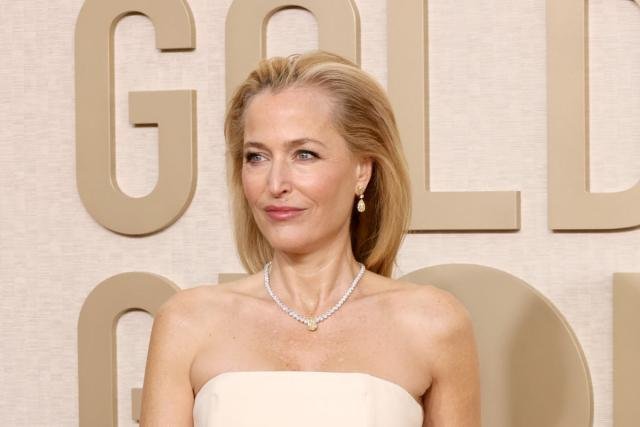Want Gillian Anderson? Exploring the Enduring Allure of the Screen Icon
Few names in modern entertainment evoke such a complex mix of elegance, mystery, and raw talent as Gillian Anderson. Whether you discovered her as the brilliant FBI agent Dana Scully in The X-Files, as the manipulative and powerful Margaret Thatcher in The Crown, or as the sexually progressive Dr. Jean Milburn in Sex Education, one thing is clear—if you want Gillian Anderson, you’re not alone. She has captivated audiences for over three decades, not just through her roles but also through her poise, versatility, and undeniable presence. In an industry where stars rise and fall rapidly, Gillian Anderson continues to shine.
This article delves deep into the phenomenon of Gillian Anderson. What is it about her that draws such consistent admiration? How has she maintained relevance and artistic integrity across decades? Let’s explore the enduring allure of this global screen icon.
Early Life and the Birth of a Star
A Transatlantic Upbringing
Gillian Leigh Anderson was born on August 9, 1968, in Chicago, Illinois, but her childhood was far from the typical American experience. At a young age, Anderson’s family moved to London, which exposed her to British culture and theater—an influence that would profoundly shape her acting style and future career choices.
She returned to the U.S. in her teenage years, settling in Grand Rapids, Michigan, where she began developing a love for acting. Her unique blend of British sophistication and American grit would become a trademark of her performance style. Even then, her teachers and classmates recognized a magnetic quality in her performances. It wasn’t just that Gillian could act—she transformed.
From Theatre to Television
Anderson studied theater at DePaul University in Chicago and honed her craft on the stage before making her way to Hollywood. Her early career saw her performing in small theater productions, where she quickly gained a reputation for her intensity and dedication. This foundation in classical training became evident in her later screen work, particularly in emotionally demanding roles.
Her move into television was not immediate, and she initially avoided the medium, considering it artistically inferior to theater. That perception would change with one role that would alter the course of her career—and television history.
The X-Files and the Birth of a Cultural Icon
Dana Scully—More Than Just a Role
In 1993, Anderson landed the role of Dana Scully in The X-Files, a character that would become iconic in popular culture. As the skeptical, science-driven FBI agent alongside David Duchovny’s Fox Mulder, Anderson redefined female roles on television. Scully wasn’t just a sidekick—she was intelligent, authoritative, and deeply complex.
What made people want Gillian Anderson in this role wasn’t just her beauty or intellect. It was the way she embodied Scully’s quiet power, balancing skepticism with empathy. In a world of conspiracies, aliens, and paranormal occurrences, Scully was the rational center—and Anderson made her real.
The Scully Effect
One fascinating cultural impact of her role was the so-called “Scully Effect.” Studies have shown that Anderson’s portrayal inspired a generation of women to pursue careers in science, medicine, and law enforcement. She didn’t just play a scientist—she normalized the idea that women could be rational, authoritative, and emotionally complex all at once.
This phenomenon significantly contributed to Anderson’s status as more than just an actress. She became a symbol—of intelligence, integrity, and possibility.
Reinvention and Evolution in the 21st Century

From Scully to Stage Queen
After The X-Files, Anderson didn’t rest on her laurels. Rather than typecasting herself in similar roles, she took a bold turn back to theater and British drama, earning critical acclaim in stage productions such as A Doll’s House, A Streetcar Named Desire, and All About Eve. Her portrayal of Blanche DuBois in Streetcar was heralded as one of the most powerful in modern theater.
Her comfort in both British and American spheres allowed her to cross the Atlantic seamlessly, making her a rare performer who is equally respected on the West End and Broadway.
Television Renaissance—The Fall and The Crown
In the 2010s, Anderson saw a major television resurgence. Her role as Detective Superintendent Stella Gibson in The Fall showcased her as a cold, calculating, yet deeply human police officer. She portrayed female power and authority in a fresh, commanding light.
Then came her jaw-dropping transformation into Margaret Thatcher in The Crown. Many were skeptical that Anderson, known for her elegance and glamour, could embody such a divisive and historically stiff figure. Yet she silenced critics with a portrayal that was both chilling and nuanced. It won her a Golden Globe and further cemented her status as an actress of incredible range.
The Modern Muse—Sex Education and Cultural Relevance
Dr. Jean Milburn and Gen-Z Stardom
If you thought Gillian Anderson’s appeal was limited to Gen X and Millennials, think again. Her role in Netflix’s Sex Education introduced her to an entirely new generation. As Dr. Jean Milburn, a sex therapist and single mother, Anderson walked the fine line between comedy and sincerity. Her performance was bold, vulnerable, and deeply funny.
It showed once again why people across all demographics want Gillian Anderson. She adapts to the moment without losing her identity. Whether discussing Freud with teenage clients or embodying national leaders, she radiates relevance.
Style, Substance, and Social Impact
A Fashion and Feminist Icon
Beyond her acting, Anderson is also a fashion icon. Known for her minimalist yet powerful red-carpet presence, she combines vintage elegance with modern femininity. She doesn’t chase trends—she defines them.
Gillian is also a committed feminist. She has openly discussed the gender disparities in Hollywood, advocating for equal pay, stronger roles for women, and support for female creatives behind the scenes. She has lent her voice to numerous causes, including child protection, sexual assault awareness, and LGBTQ+ rights.
Her activism isn’t performative. It is part of her brand, integrated into how she lives and works. In short, people want Gillian Anderson not just because of how she acts, but because of who she is.
Why Do So Many People Still Want Gillian Anderson?
Timeless Appeal in a Fickle Industry
What makes Gillian Anderson so enduring? Perhaps it’s her uncanny ability to evolve without losing authenticity. In an age where celebrities often feel overexposed or manufactured, Anderson feels refreshingly real. Her roles are diverse, her performances always emotionally grounded, and her public persona remains refreshingly private.
Her choices—both personal and professional—exude confidence and depth. She has never relied on scandal or sensationalism to stay relevant. She lets her work speak for itself.
Global Influence and Fan Dedication
Anderson’s global influence is reflected in her diverse fan base. Whether at Comic-Con or a London theater, fans resonate with her strength, intelligence, and vulnerability. Her loyal following is not driven by hype, but by years of consistent, meaningful work. Few actors today command such cross-generational and cross-cultural admiration.
From Tumblr fan pages to TikTok edits, from scholarly articles to fashion blogs, the message is clear—people want Gillian Anderson in their stories, their politics, their style, and even their therapy sessions.
Conclusion
Gillian Anderson stands as a beacon of lasting relevance in an entertainment landscape often dictated by fleeting trends and overnight fame. Whether she’s playing an intergalactic investigator, a steely political figure, or a candid sex therapist, Anderson brings authenticity, intelligence, and an unmistakable spark to every performance.
So, if you find yourself saying, “I want Gillian Anderson,” know that you’re part of a global chorus echoing the same sentiment. She’s not just a talented actress—she’s a symbol of strength, grace, and evolution. Gillian Anderson is not merely wanted—she is needed in modern storytelling. And as her career continues to evolve, one thing remains certain: her allure is here to stay.
Read more: Jacob Fatu: The Samoan Werewolf Dominating the Wrestling World


